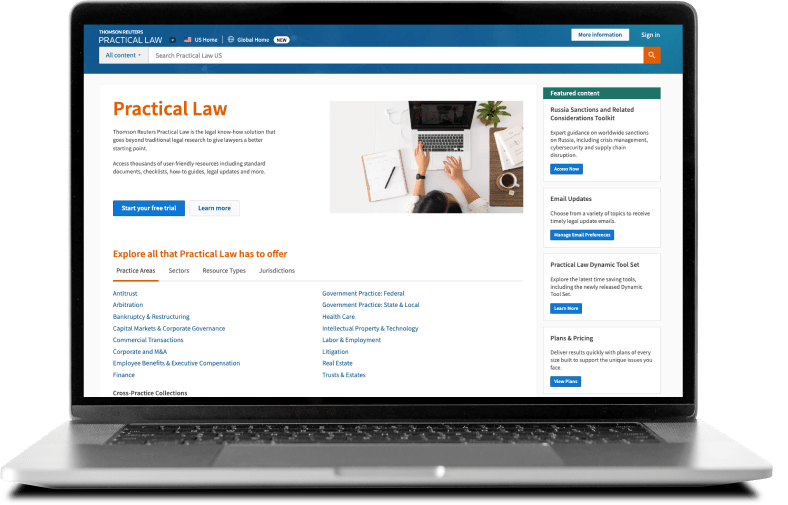In-house lawyers typically have a very full schedule and finding time for anything but the company’s legal needs is difficult. Yet, more and more in-house legal departments are finding ways for their members to participate in pro bono programs, i.e., providing free legal services to the community. In addition to providing a much-needed service, engaging in pro bono work provides many other benefits to the individual, the legal department, and the company. Below we explore why starting or expanding a pro bono program is a worthwhile goal for all legal departments and discuss some of the key things to have in place as you develop your program.
Jump to:
| Why start a pro bono program? |
| Get support from the top |
| Get insurance! |
Why start a pro bono program?
There are plenty of benefits to a legal department that starts a pro bono program. We’ll start with the obvious – there are many, many people out there who cannot afford legal services. Pro bono services are one way that the less advantaged in our society can obtain basic assistance with legal problems and enforce or protect legal rights that might otherwise fall by the wayside due to lack of ability to pay.
In addition to simply “doing good,” here are several other benefits:
- Employee Engagement. Employee engagement is one way to measure how attached an employee is to their employer. A pro bono program provides members of the legal department with an opportunity to “do good” and develop a sense of loyalty and motivation that can be lacking when the job is simply the same routine day in and day out. A pro bono program allows the legal department to support the company’s values and go out into the community as ambassadors of those values. Employees generally like to work for companies that share their values and are interested in giving back to their communities. Pro bono work fits perfectly with this desire.
- Professional Development. Pro bono services provide an outlet for members of the legal department to hone legal skills or develop new ones. For example, an attorney in the litigation section may have the opportunity to go to trial on a small landlord-tenant dispute. A contract lawyer may have the opportunity to parse and draft new types of agreements. And if, for example, you have a trademark lawyer who has been itching to get some practical litigation experience as a way of rounding out their skill set, pro bono work provides a perfect vehicle to do just that in a low-stakes, low-stress manner.
- Retention. Pro bono projects can provide an excellent retention tool. In addition to the benefits of employee engagement mentioned above, attorneys who feel valued and able to grow with new responsibilities tend to stick around. Pro bono assignments provide them with the opportunity to stretch their skills, interact with people outside the legal department, and feel good about contributing something back to the community.
- Recruitment. Most potential employees want to work for a company that they see as ethical and socially responsible. Pro bono services are one way the company can attract employees to the legal department and to other parts of the company, i.e., the goodwill generated via providing pro bono services reflects on all parts of the company, not just the legal department.
- Morale. Working in an in-house legal department can be as stressful and demanding as any law firm position. Volunteering is well-established as a way to build morale and teamwork by providing in-house lawyers (and others in the department) a sense of pride and accomplishment, along with sharing common values. Many of the lawyers will work together on pro bono projects and the camaraderie that flows from teamwork like this is invaluable for morale.
This is not an exhaustive list by any means, but you can start to see the power of a fulsome pro bono program.
Get support from the top
If you want to start (or expand) a pro bono services program, you need to ensure that the idea is supported at the very highest levels of the company. This means the Chief Legal Officer or General Counsel for sure, but also the CEO and head of marketing/communications. While the former is an obvious benefactor, the latter two may seem odd choices. But if the CEO is not supportive of her legal department engaging in pro bono activities (or certain pro bono activities) this misconnect can cause a lot of problems and angst down the road. For example, in this world of hyper-political partisanship, what may have been an easy choice for pro bono work five years ago can become a target on the back of the company. So, be sure to clear the program and the types of matters with the CEO. Likewise, loop in the head of marketing/corporate communications for the same reason you need to loop in the CEO and for the added reason of giving the company the opportunity to tout and benefit from the legal department’s pro bono efforts. All companies are looking for opportunities to show how they give back to their communities. Providing free legal services fits the bill.
Get Insurance!
A common misunderstanding in the legal community (and in-house world) is that if you are providing free pro bono services you are immune from malpractice lawsuits. Unfortunately, while such suits are rare, this is not the case. Any lawyer can be sued at any time for alleged malpractice. It doesn’t mean you lose, but it does mean you will have to deal with the headaches and the expense unless you have insurance in place. There are several solutions:
- Obtain separate malpractice insurance for the legal department
- Obtain a rider adding malpractice coverage to one of the company’s existing policies
- Partner with a pro bono legal services provider that has malpractice insurance that covers volunteers
- Partner with a law firm that has malpractice insurance that covers volunteers assisting with the firm’s pro bono program
The key is to not start providing pro bono services without a basic amount of malpractice coverage. This is especially important when the pro bono services your team may provide lie outside their typical responsibilities in the legal department, e.g., a contract lawyer providing litigation advice.
The challenge for many legal departments is not knowing where to start. First, reach out to your outside law firms and see if they have pro bono programs your team can participate in (or if they know of local organizations looking for pro bono assistance). Second, each state bar association has a pro bono law section and numerous opportunities to get involved. And third, check out the National Pro Bono Opportunities Guide which provides a comprehensive state-by-state overview of pro bono opportunities. Many legal departments let one of their less experienced lawyers run their pro bono program. It is an easy way to give someone experience with “owning” something and a way to see how they perform when they have the keys in their hand. Lastly, many pro bono opportunities involve areas of the law that are not familiar to most in-house lawyers. While organizations will provide a crash course in the areas they are seeking your assistance with, just keep in mind that services like Practical Law have an incredible array of resources that can be used to provide pro bono services, from ethics requirements of pro bono law to development programs, checklists, templates, and toolkits.
 | Get answers with Practical Law Practical Law has 90,000+ total resources across 17 practice areas and (unlike ChatGPT) over 650 full-time experienced attorney editors keeping these materials up to date daily. |
_____________________________________________________________________________________
STERLING MILLER, HILGERS GRABEN PLLC
Sterling Miller is currently CEO and Senior Counsel at Hilgers Graben PLLC. He is a three-time General Counsel who spent almost 25 years in-house. He has published five books and writes the award-winning legal blog, Ten Things You Need to Know as In-House Counsel. Sterling is a regular contributor to Thomson Reuters as well as a sought-after speaker. He regularly consults with legal departments and coaches in-house lawyers. Sterling received his J.D., with honors, from Washington University in St. Louis.













